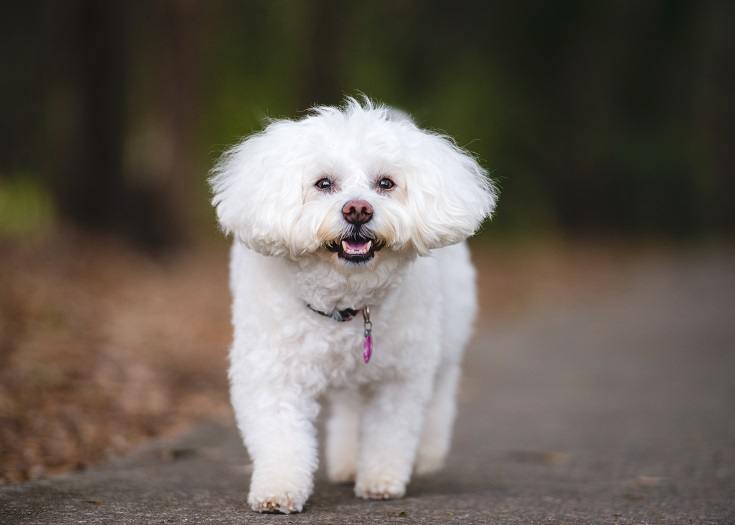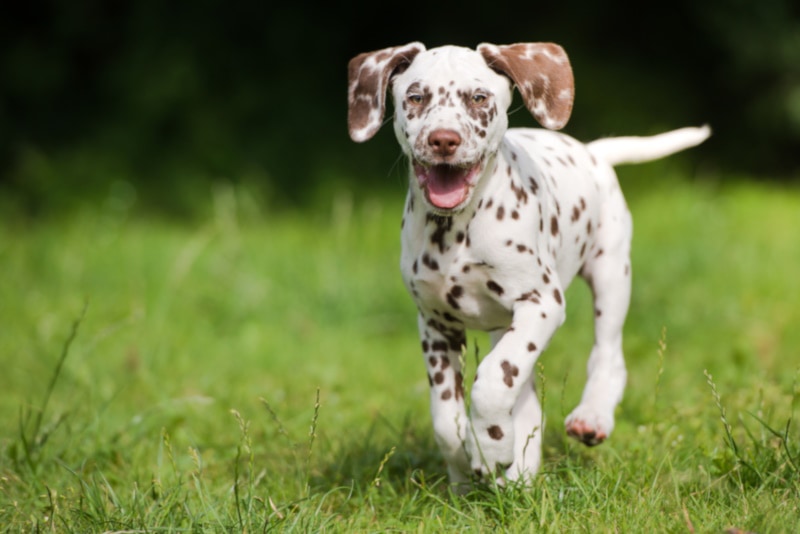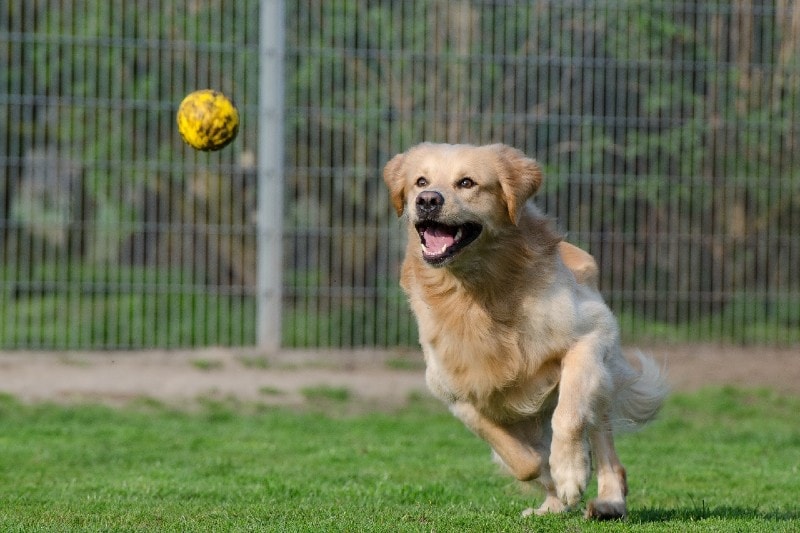Havanese Dog Breed: Pictures, Info, Temperament & Traits
By Ashley Bates
Updated on
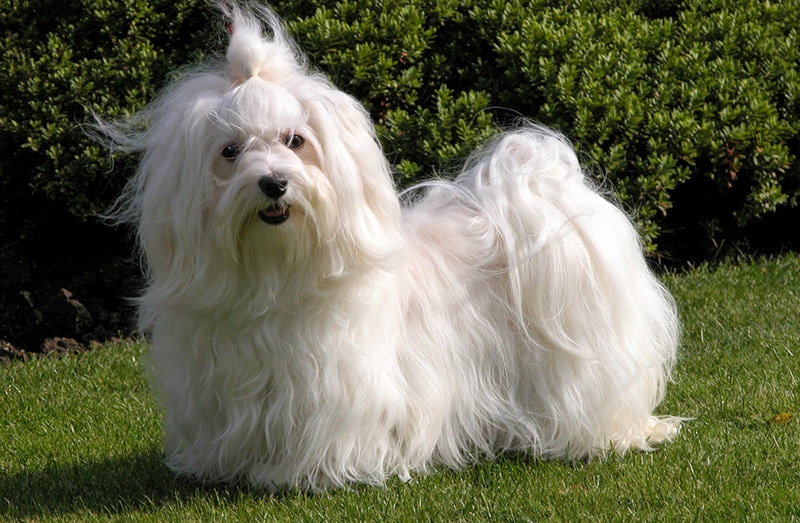
Click to Skip Ahead
So, you want to know what it’s like to own a cheerful, peppy pup like the Havanese? We don’t blame you! These companion dogs are suitable for so many different situations and people.
If you need to learn all the ins and outs to ensure the breed is for you, we commend you on checking before taking the plunge. You will likely find the Havanese fitting for your lifestyle, and we will give you all of the ends and outs so you can make an informed decision.
Breed Overview
| Height: | 8.5–11.5 inches |
| Weight: | 7–13 pounds |
| Lifespan: | 14–16 years |
| Colors: | Gold sable, red, red sable, red brindle white, black, chocolate, blue brindle, gold, red, silver, black and tan, black and silver, fawn brindle, fawn brindle, fawn sable, chocolate sable, chocolate brindle, silver sable, black and silver brindle |
| Suitable for: | Apartment living, growing families, multi-pet households |
| Temperament: | Affectionate, docile, happy-go-lucky, amiable |
The lovely Havanese is a long-haired breed hailing from Cuba that is compact and adorable. These dogs are notorious for their amazingly charismatic personalities, meshing with almost any animal or person they encounter.
We think you will love the breed for all they have to offer. These dogs are nearly the perfect companions, so it’s really hard to find flaws in the breed. Here is all you need to know about owning this pretty little pup.
Havanese Breed Characteristics
Havanese Breed Puppies
Bringing home your little Havanese puppy will be a wonderful memory. Right away, you will notice how exceptional and lovable they are. While they might go through a rough and tumble stage, they always remain relatively laid-back in nature.
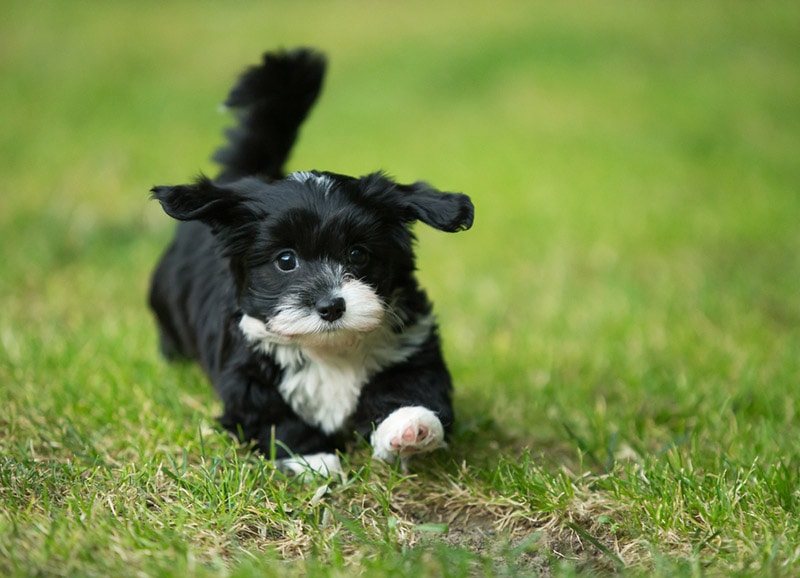
Find a Reputable Breeder
First, you must purchase your Havanese from a reputable breeder. Doing so will ensure the proper health and care of your dog. Breeders might ask you to put down a deposit or sign a puppy contract if you are unable to take care of your dog.
When you bring your puppy home, you need to ensure that you get all of the appropriate items they will need to thrive.
- Food and water bowls
- Puppy chow
- Toys
- Bedding
- Leash/harness
- Kennel/crate
Vet Care
It is also essential to take them to your vet as soon as possible upon their arrival. Most purebred Havanese should have testing and their first round of shots, but you will be responsible for the upkeep. You can expect to visit your vet quite a few times in the first year, so the two will become well-acclimated.
If you have a puppy, getting insurance early if you so choose to is imperative. Once a health condition crops up, insurance companies will no longer cover that issue as it is considered a pre-existing condition. There are several insurance markets out there to cover pets these days, and we highly recommend you do some research on it.
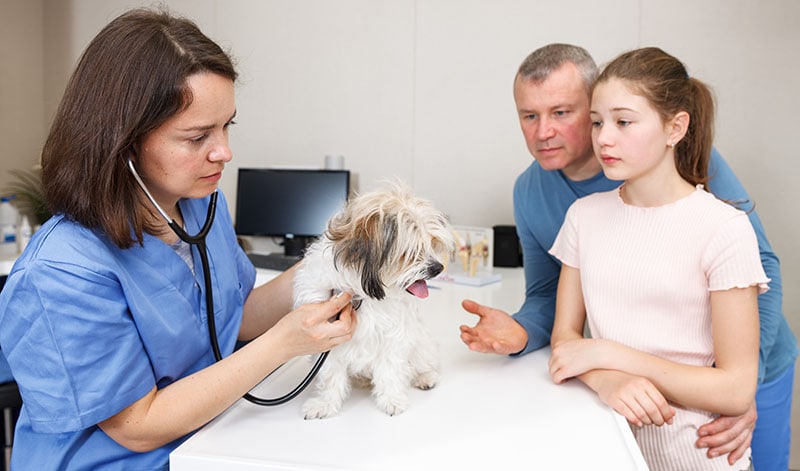
Ensure Their Needs Are Met
You also need to find a way to care for your puppy while working. These dogs will need to be let out every few hours after you bring them home. It is important to have a way to make sure their needs are met by working around your work schedule.
Temperament & Intelligence of the Havanese
These little dogs will always impress you with their adorable antics and excellent temperament. Appropriately bred, these dogs make fantastic companions for various lifestyles and acclimate well into many different living situations.
A Havanese is notorious for their cheerfulness and eagerness to please. Even though they are small dogs, they are effortless to train because they thrive so much on their owner’s approval. Unlike many other small breeds, they don’t typically have little dog syndrome, which means they won’t be bossy or overbearing in social settings.
The Havanese are the epitome of easygoing, ready to play, or ready to rest. They are happily content walking on a breezy day or relaxing with their owners on a lazy Sunday.
When it comes to intelligence, they don’t win the prize for the gold standard, but they are a pretty clever little breed with lots of potential.
Are These Dogs Good for Families? 👪
The Havanese might be one of the best choices for a growing family that you could possibly make. They are good with everyone and everything! They work very well with children, including those with disabilities.
They make extremely good additions for retired folks or those with sedentary lifestyles, too. Their exercise needs and activity levels aren’t too demanding, making them easy to care for and perfect to cuddle. The cheery Havanese is an ideal match for virtually anyone.
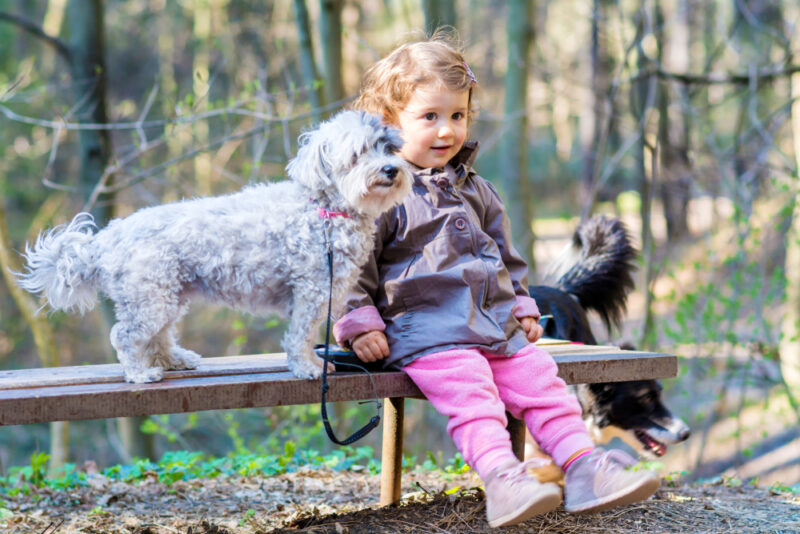
Does This Breed Get Along With Other Pets?
A Havanese gets along exceptionally well with other pets. In fact, they often thrive having another companion around. So if you already have pets or plan to get another, you will have nothing but positive experiences between the newcomer and your Havanese.
The Havanese is even a good choice if you have smaller pets, although caution is advised. A dog is still a dog and should never be trusted alone with small animals, no matter how harmless you think it might be. Accidents happen, so it can certainly occur even if an injury is not intentional.
Things to Know When Owning a Havanese
Food & Diet Requirements 🦴
The Havanese doesn’t have any major dietary restrictions, but they can be fussy eaters. This breed might require mixing dry kibble with wet canned food. If you really want to spoil your Havanese, you can opt for a subscription-based fresh food service that delivers meals directly to your door.
These options are becoming more prevalent as dog owners learn more about canine nutrition. Regardless of the type of diet you choose, make sure that it is a high-quality, protein-rich recipe without a lot of artificial flavors and preservatives.
If your Havanese is picky, you can always try sprucing up boring dishes with broth or pate.
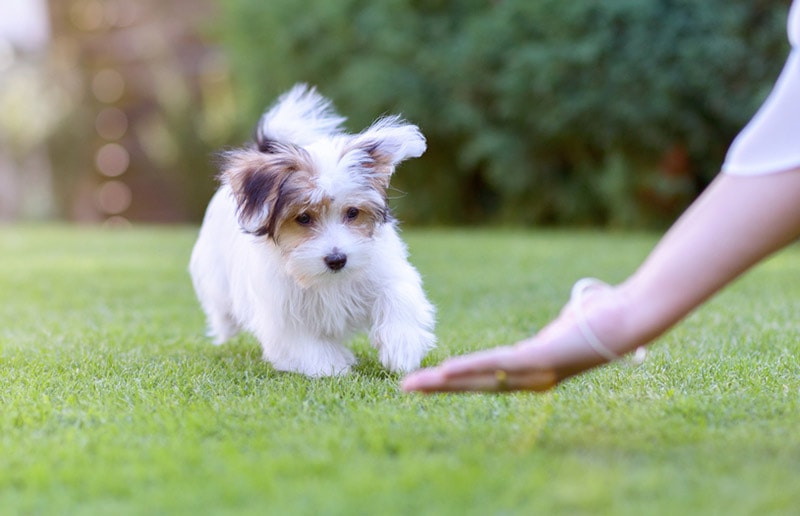
Exercise 🐕
The Havanese is an exceptional darling to have when it comes to exercise. The reason is that they are quite content snuggling up with you on the couch or going out on an evening stroll.
They require between 30 and 45 minutes of exercise a day to stay happy and healthy. This should not be a complex requirement for most families or even single owners. If you have any disability or complication with mobility, this could be a good choice for you.
Because the Havanese are such a social breed, they would fare very well going to local dog parks and interacting with other canines. They will meet new faces with tails wagging. You can say this dog never meets a stranger.
Training 🎾
Because the Havanese are so eager to please, training should be a cinch in most cases. However, they are also small dogs that are extremely cute, so they tend to get their way a lot more than some others. If you let their looks keep them out of trouble, they can take advantage of the leniency.
Train your Havanese early. The quicker they learn potty training, basic commands, and manners, the faster they will achieve results.

Grooming ✂️
Grooming a Havanese can be challenging for novice owners. They require a trip to a professional groomer once every 4 to 6 weeks unless you learn to do it at home. These dogs require daily brushing to prevent matting and tangling.
However, if your Havanese has a very well-kept coat, they are very beautiful, and can sport many unique hairdos. It is likely one of the things that you love about the breed. It just takes a little upkeep.
Like most other breeds, your Havanese needs a full body bath once every 4 to 6 weeks. Brushing is not only essential to prevent any tangles from occurring, but it can also remove dander and debris between baths and reduce any dead hair in the coat.
In addition to bathing and brushing in, your dog will need timely nail trims, tooth brushing, and ear cleaning.
Health and Conditions 🏥
With proper breeding practices, you shouldn’t have too many genetic health issues of concern. However, certain issues can crop up in the breed, and they can be costly to treat.
To ensure proper health, securing a veterinarian and taking your pup on scheduled visits is important. During the first year, you and your pup will get to know your vet very well.
During this time, your vet will monitor your dog’s growth, administer age-appropriate vaccinations, give you parasite prevention, and spay or neuter your pup. You can also opt for optional microchipping.
After the first year, it will taper off to annual visits. These office appointments will allow your vet to check your dog annually to ensure there are no developing health conditions or red flags of concern.
- Cherry eye
- Tooth disease
- Allergies
- Hip dysplasia
- Legg–Calve–Perthes disease
- Luxating patella
- Hypothyroidism
- Heart Disease
- Congenital portosystemic shunt
- Hypoglycemia
- Liver disease
Male vs. Female
Female and male Havanese are both very similar in disposition, but there are some differences. First, the males tend to be a little larger than their female counterparts and might be a little stockier as well.
Females tend to be daintier and leaner. The male Havanese gets a reputation for being a lot more laid-back and easygoing than their female counterpart as well. That doesn’t mean little girls can’t be lovable. They just tend to be a little more particular than their male counterparts.
However, they both have very good personalities and love time spent with their people. The male is a bit more compatible with other household members, and the female gravitates more toward one person over the others.

3 Little-Known Facts About the Havanese
1. The Havanese is the National dog of Cuba!
The Havanese are the only breed to originate in Cuba and are celebrated as the country’s national dog!
2. The Havanese was designed to be a companion animal.

The Havanese had no other purpose other than accompanying humanity on their lifelong journey. They were meant to be close to your heart and atop your lap.
3. The Havanese almost went extinct.
In the mid-20th century, the Havanese almost went extinct due to the Cuban Revolution. Luckily, breeders worked diligently to revamp the breed that we know and love today.
Final Thoughts
So now you know a little more about the Havanese breed. These little dogs have exceptional personalities and have so much love to give! If you think the Havanese is the right breed for you, check out local reputable breeders in your area to see which puppies are available.
You won’t regret getting one of these little spoiled puppies. They are so sweet and cute that it will be hard to feel anything but love for them. What is your favorite thing about the friendly little Havanese?
Featured Image Credit: Sue Thatcher, Shutterstock



